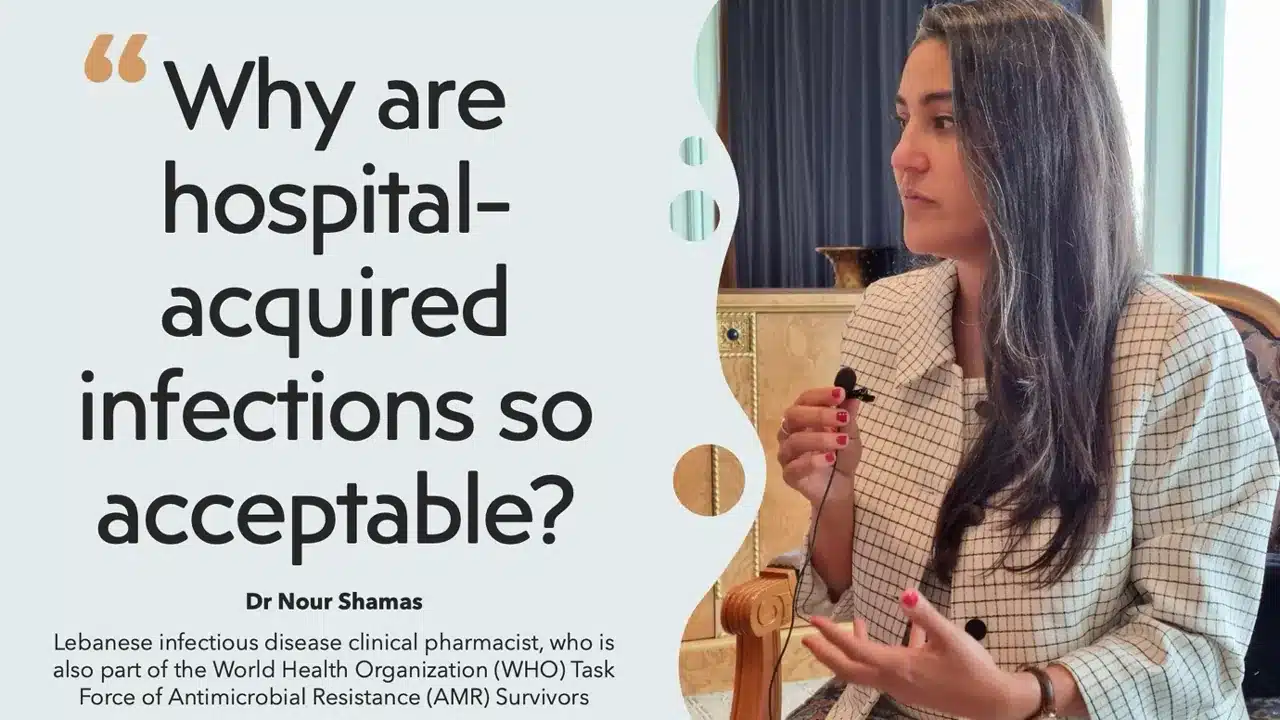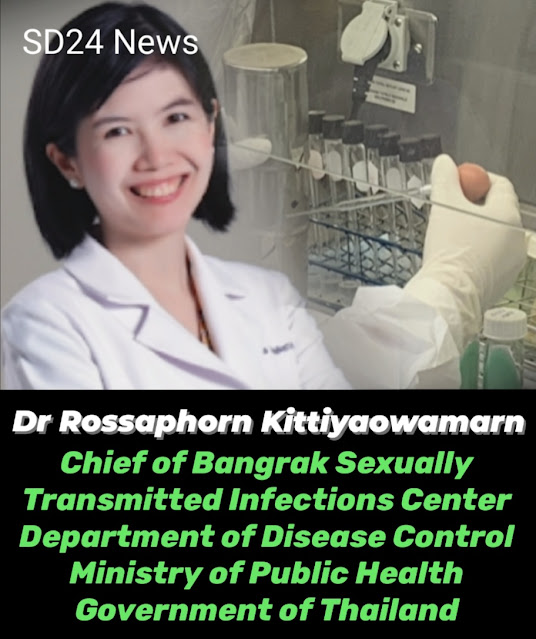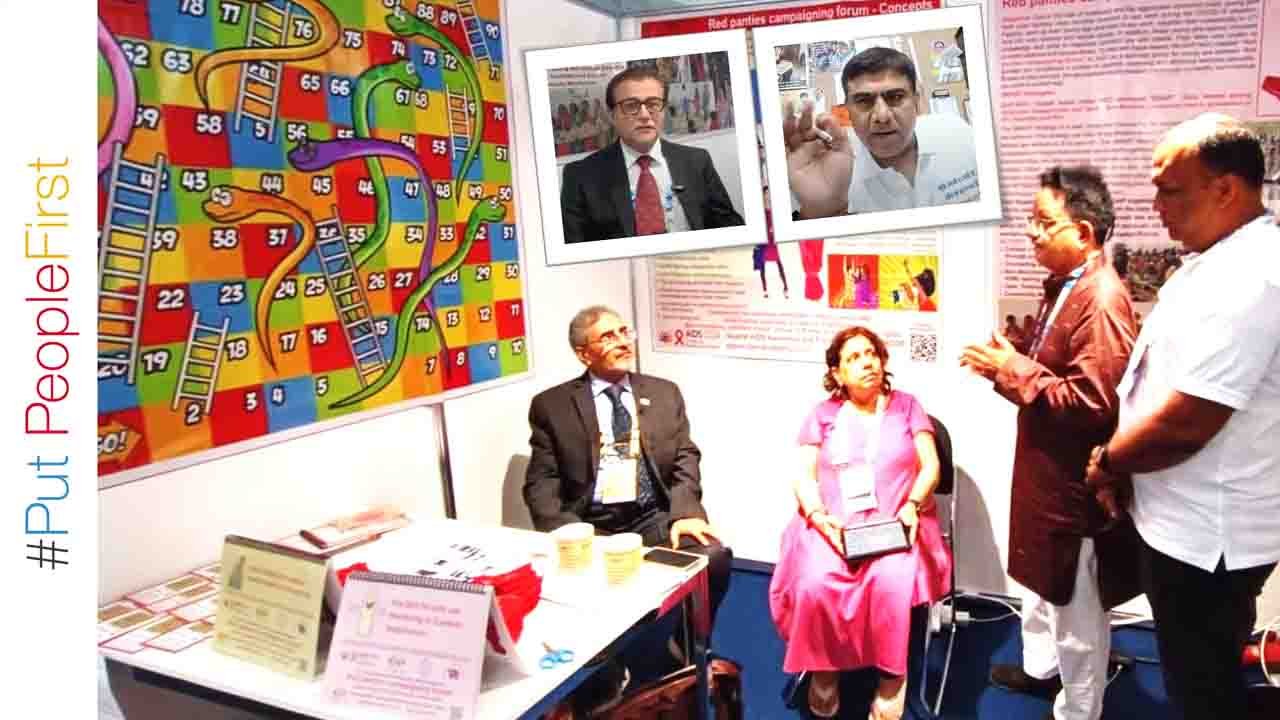Moment of truth: Will Thailand lead from the front in combating antimicrobial resistance?
SHOBHA SHUKLA, BOBBY RAMAKANT – CNS
Do we not dread an unfortunate situation of being infected with an incurable (or difficult to treat) disease? We saw how COVID-19 (to which there is no cure yet) jolted not only the global health security but also economic and social security worldwide.
When medicines stop working against disease-causing pathogens (such as, bacteria, virus, fungus or parasite) due to antimicrobial resistance, then diseases become difficult (or impossible) to treat. Inappropriate and irresponsible use of medicines is fuelling antimicrobial resistance in sectors such as human health, animal health and livestock, food and agriculture, and the environment.
Many infections that were previously treatable and curable with our drugs are becoming (or are at risk of becoming) incurable, as medicines are not working against them. Treating even common infections is becoming a problem. Surgeries are becoming risky.
Antimicrobial resistance is among the top killers now
Over 6 million deaths occurred in a year that were directly or indirectly attributed to antimicrobial resistance, making it among the top killers worldwide. “Bacterial resistance to antibiotics directly caused 1.27 million annual deaths among humans and indirectly causes or contributes or is associated with an additional 4.95 million annual deaths. This huge loss of human life due to antimicrobial resistance has made it the top killer among all other diseases and conditions. Moreover, according to a 2017 World Bank report, if no action is taken now, antimicrobial resistance is likely to cause an USD 1.2 trillion additional health expenditure per year by 2050, and push up to 24 million additional people (particularly in low-income countries) into extreme poverty by 2030” said Dr Haileyesus Getahun, Director, Global Coordination and Partnership on antimicrobial resistance, and Director, Quadripartite Joint Secretariat on antimicrobial resistance, World Health Organization (WHO).
Thailand: commendable progress to reduce AMR but challenges remain
In 2016, Thailand government endorsed the National Strategic Plan on antimicrobial resistance 2017–2021, which was recently extended to 2022.
Thailand aimed to reduce the antimicrobial use in people and animals by up to 30% by 2021. Interim results indicate that antimicrobial consumption in animals has reduced by almost 50% (exceeding the national goal of a 30% reduction) by 2021 whereas other goals are yet to reach their targets. These other targets include: 50% reduction in morbidity due to antimicrobial resistance; 20% reduction in antimicrobial consumption in humans; 20% increase of public knowledge on antimicrobial resistance and awareness of appropriate use of antimicrobials; and improving capacity of national antimicrobial resistance management system.
Thailand: antimicrobial resistance and gonorrhoea
Gonorrhoea is the most common bacterial sexually transmitted infections in Thailand, affecting both men and women, particularly between 15 and 24 years old. Untreated gonorrhoea can have serious and permanent consequences, including infertility in men and women, pelvic inflammatory disease and life-threatening ectopic pregnancy. Gonorrhoea also increases the risk of HIV transmission.
As per a study, the gonorrhoea causing bacteria has already become resistant to penicillin, tetracycline, and fluoroquinolones. And now there is a rising global emergence of azithromycin and/or ceftriaxone resistant gonorrhoea that threatens the current WHO recommended azithromycin and ceftriaxone dual therapy to treat gonorrhoea, which is currently used in Thailand. The study has reported multidrug-resistant gonorrhoea infection in heterosexual men in Thailand with reduced susceptibility to ceftriaxone.
Dr Rossaphorn Kittiyaowamarn, Chief of Bangrak Sexually Transmitted Infections Center, Department of Disease Control, Ministry of Public Health, Government of Thailand, is rightly concerned. In an exclusive interview with CNS (Citizen News Service), she responded: “Gonorrhoea remains a major public health concern, not just in Thailand but globally. Thailand is faced with the problem of antimicrobial-resistant Neisseria gonorrhoea. The first case of antibiotic non-susceptible Neisseria gonorrhoea was reported in Thailand in 2017 and the number of cases is rising. Therefore, the expanding of antimicrobial-resistant gonorrhoea surveillance should be considered in Thailand. It is necessary to strengthen Neisseria gonorrhea laboratory tests to guide proper antibiotics use for reducing the risk of antimicrobial resistance in the coming future”.
One Health approach in Thailand
Thailand has rightly adopted an antimicrobial resistance surveillance system based upon the One Health approach. As inappropriate and irresponsible use of medicines is rampant in human health, animal health and livestock, food and agriculture, and the environment, which is fuelling antimicrobial resistance, we need a solution that brings together these 4 sectors. Effective collaborative actions to reduce inappropriate and irresponsible use of medicines in all these 4 sectors is vital if we are to protect our medicines that protect us. That is why, One Health approach is vital to find solutions for challenges like the one posed by antimicrobial resistance and rabies.
Undoubtedly, a key achievement in Thailand is the establishment of a national integrated surveillance of antimicrobial resistance network led by the health, agriculture and environment Ministries. Thai team developed new standard protocols on antimicrobial resistance surveillance to monitor the prevalence and relationship of targeted bacteria across the human, livestock, aquaculture, food and environmental sectors. In addition, a scientific platform was developed to generate evidence to guide policy development, implementation and monitoring in Thailand. But clearly Thailand needs to do a lot more than it is currently doing to decimate antimicrobial resistance – and lead by example for other nations in ASEAN region and the world.
Antimicrobial resistance making pneumonia, diarrhoea a bigger threat
“Lower respiratory tract infections, like pneumonia, accounted for more than 1.5 million deaths associated with antimicrobial resistance in 2019 globally, making it the most burdensome infectious syndrome of our time” said Thomas Joseph, Head, Antimicrobial Stewardship and Awareness Unit, World Health Organization (WHO).
A person with a drug-resistant infection is more likely to be sick and absent from work and family commitments, for longer, and require more expensive medicines and medical care. This has major implications on health-care costs and productivity, both for patients and their caregivers, as well as more broadly on the health system and national economy.
“Each year hundreds of millions of cases of diarrhoea in humans are treated with antimicrobials. Universal access to clean water, sanitation and hygiene could reduce this by 60%” added Thomas Joseph.
Clearly reducing diarrhoea for instance, warrants effective collaboration between agencies of health, sanitation and hygiene, among others. Having access to clean water, sanitation, and hygiene, as well as good infection prevention and control measures, such as handwashing and vaccination, are vital in the fight against antimicrobial resistance. These measures reduce the likelihood of infection in the first place, so that antibiotics don’t need to be used.
Protecting the medicines that protect us
The World Antimicrobial Awareness Week (WAAW 2022) which is observed every year during November 18-24 draws attention to improve awareness and understanding of antimicrobial resistance and the One Health approach to reduce the further emergence and spread of antimicrobial resistance.
In his message for this year’s WAAW 2022 (whose theme is ‘Preventing Antimicrobial Resistance Together’) Dr Tedros Adhanom Ghebreyesus, Director General of the WHO, has rightly remarked that “Antimicrobial resistance is everybody’s business. We can all play a part in protecting the medicines that protect us.”
Shobha Shukla, Bobby Ramakant – CNS (Citizen News Service)







